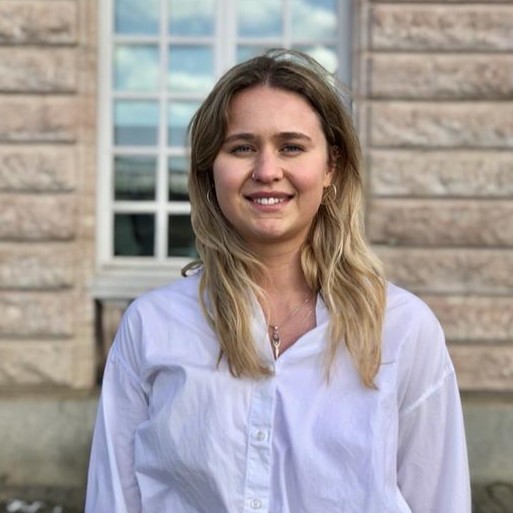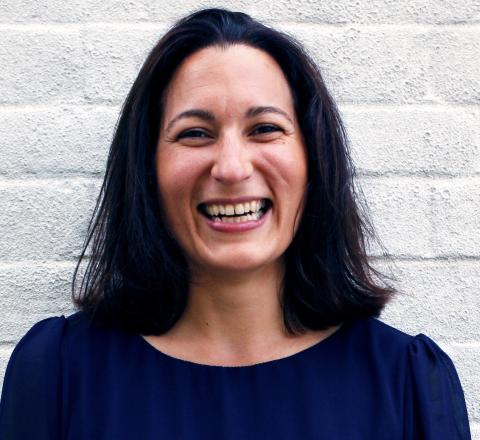
“We need to reclaim the 'system-disrupting' power of deliberative democracy”: An interview with Claire Mellier on Global Citizens' Assemblies
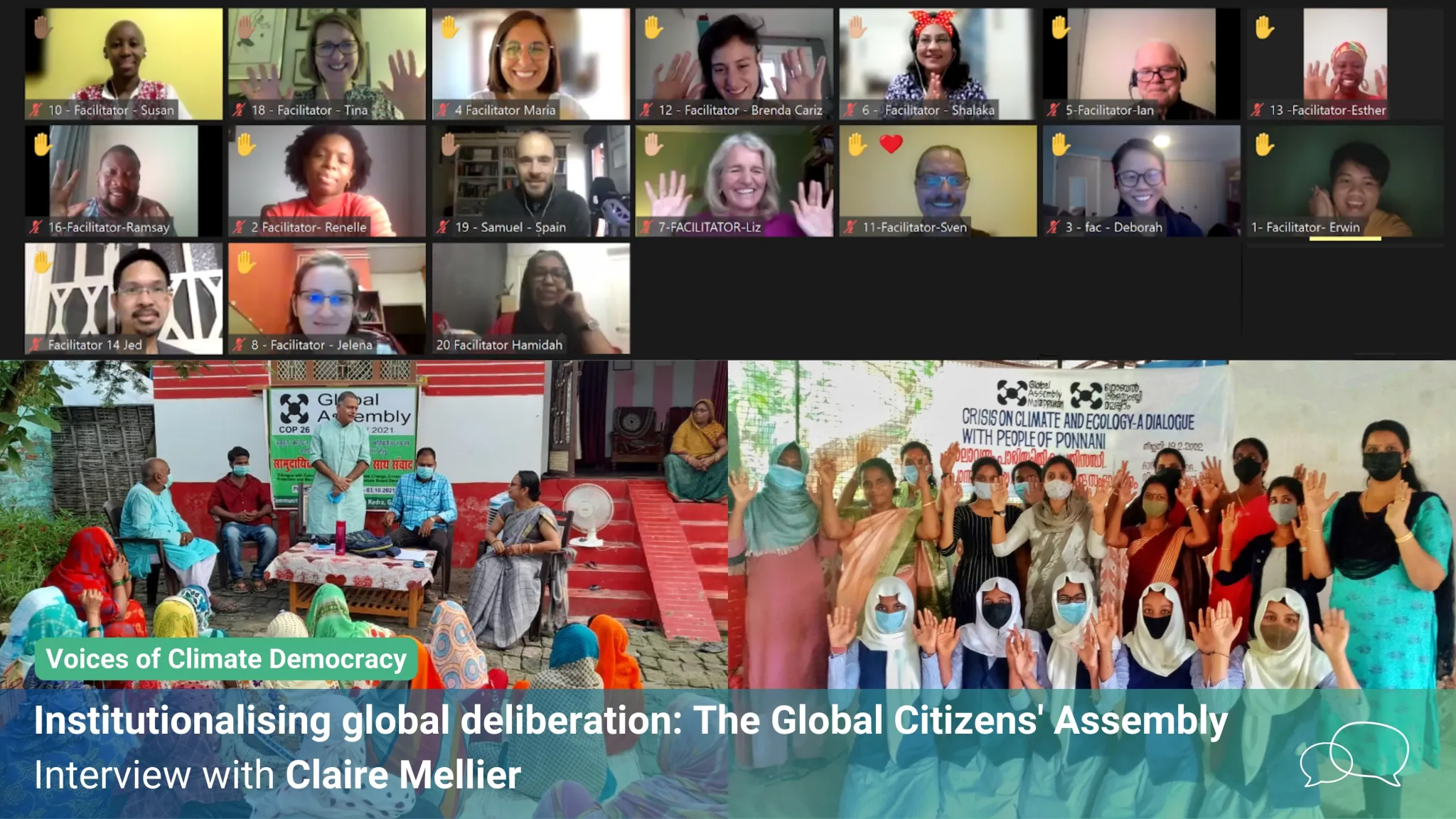
This interview is part of the series "Voices of Climate Democracy". The series provides a platform for insights from the people making climate assemblies happen around the world, through local, national, and global initiatives. We explore what works, the challenges that arise, and how learnings can enrich future climate assemblies.
Claire Mellier is the Knowledge and Practice Lead at Iswe Foundation and was one of the co-initiators of the first Global Assembly on the Climate and Ecological Crisis in 2021, ahead of the UN Climate Change Conference (COP26). The assembly was the first transnational deliberation of its kind, bringing together 100 participants, selected in a multistage civic lottery that mirrored the global population. This was complemented by a series of Community Assemblies and a 'Cultural Wave' that invited artists and content creators to help popularise the Global Assembly.
Building on this experience, Claire Mellier is now organising a Global Citizens' Assembly for People and Planet (GCA). The process is supported by the Coalition for a Global Citizens' Assembly, launched during the UN Summit of the Future in 2024. The Coalition brings together over 40 diverse organisations advocating for a permanent global citizens' assembly, which they believe would radically strengthen global governance. The process will be kicked off in relation to the 2025 UN Climate Change Conference (COP30) in Belém, Brazil, with a long-term vision to establish a permanent institution addressing global challenges, not just the climate crisis.

What has happened since the first Global Assembly in 2021 and where are you now?
It's now been four years since the first Global Assembly took place and we needed to step back and learn from what we did. An evaluation with a team of about 25 academics informed our thinking about the way forward. We supported the creation of the research collective GloCAN, and funded the first round of research to explore the topic of governance in more depth. We then decided to convene a process for co-creation, looking at what we can do next. We very much see the role of Iswe Foundation as the convener of this process, but what's critical is to ensure that co-creation with global partners is at the heart of this project. And as you know, because it's a bottom-up initiative, we needed to fundraise. So right now, we're in the final stages of securing funding for COP30 in Brazil and beyond, to establish the GCA as a permanent institution.
What is your vision for the Global Citizens' Assembly ahead of COP30?
The shift compared to five years ago, when we first started developing the Global Assembly, is that there have been so many citizens' assemblies taking place. A lot of those that focus on climate are happening in the Global North, but there are also established practices from the Global South that we really need to learn from.
COP30 comes at a critical time, especially with the Brazilian presidency. Brazil has a very strong tradition of participatory and deliberative democracy, and we launched the GCA with the support of the Government of Brazil. When President Lula announced they would host COP30, he made it clear that the objective is to make it 'the People's COP', to ensure that the voices of all people are heard. The GCA is one concrete way we're trying to make this vision real, to really begin to reform climate talks. But we're in this for the long game and COP30 is just the next step in a long learning journey for institution-building.
Based on the evaluation process, what were the key learnings that were, and will be, especially important for shaping future assemblies?
One key learning was about how important the governance and decision-making process are in shaping the remit, framing and design of the assembly. I think people like myself from the Global North really need to step back and create space for partners' input from other regions of the world. In the GCA for COP30, organisations from across the world are involved from the outset in shaping the governance and designing the process, including partners involved in 2021, and some new ones.
Another key learning is about how we define knowledge, and what evidence is used in the learning phase of assemblies. In the first Global Assembly, indigenous representatives were involved through a Knowledge and Wisdom Advisory Committee, but we didn't do their wisdom justice. This time we're bringing indigenous knowledge into the design of the assembly itself, to complement scientific knowledge and to be even more rooted in different local contexts, building from lived experience, and not just established data from the Intergovernmental Panel on Climate Change (IPCC). For instance, we are collaborating with the Articulation of Indigenous Peoples of Brazil (APIB) to ensure the assembly can learn from their work over many years organising on climate. Moreover, a limitation in a lot of climate assemblies is that they don't include enough live and updated data, often relying on reports from a few years ago that might already be outdated.
A final takeaway is about the need for deliberation on the most controversial issues. Often in citizens' assemblies, there's a tendency to seek consensus on policy recommendations. But in my opinion, the most valuable discussions happen when you look at hard trade-offs and dilemmas. Or as Professor Hammond puts it, assemblies that are 'system disrupting' rather than 'system supporting.' With this in mind, the current topic that the GCA has been exploring with the Brazilian Government for COP30 and other actors is food systems, an issue involving questions around food sovereignty, food security, and the impact of food systems on biodiversity and deforestation—controversial issues, yet important not to shy away from.
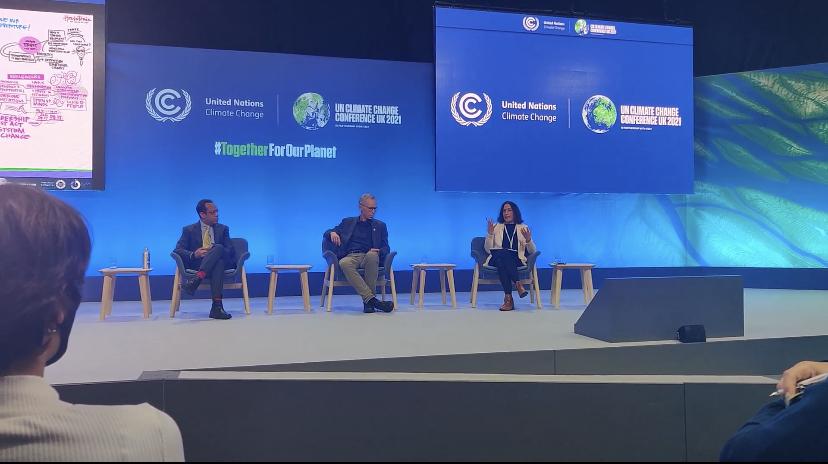
Why do you connect the Global Citizens' Assembly to a UN Climate Change Conference?
We are currently using the COP process as a hook, a docking point, but we are not limiting ourselves to climate alone. The permanent Global Citizens' Assembly we're building could look at various topics, for instance health or artificial intelligence. What we're trying to do is reimagine global governance structures and give voice to citizens, because at the moment that is not happening. The voices of citizens aren't really represented in the multilateral system and trust in climate multilateralism is at an all-time low. We just had the third COP in a row that's been called a 'petro-COP', followed by the election of Donald Trump on the eve of COP29—I think people are starting to realise that there's a need for new forms of international climate collaboration.
Outside pressure is important to push institutions to act, and citizens have significant power to drive change—even without institutional support. That's why the GCA was created. It's meant to be a permanent independent institution, but structured in a way that does not replicate current biases that favour the Global North. We work closely with COP and other key actors, but do not depend on them for success. That independence is really important.
How do you connect the Community Assembly deliberations with the Core Assembly?
In the Core Assembly of 2021, we had one hundred assembly members from around the world selected by civic lottery, who were supported to learn and deliberate together. The deliberation was quite powerful because assembly members with very different values, belief systems and lifestyles from, for instance, Germany shared their lived experiences with people from the Democratic Republic of Congo or Myanmar, having real moments of realisation about their respective challenges or disagreements. On the other hand, we also knew that there was huge potential in Community Assemblies, which were self-organised and bottom-up. However, there was no infrastructure to properly support deliberation and do justice to the stories and data emerging from these assemblies, something that researcher Iñaki Goñi calls 'little data'. This is why, since 2023, we have put a lot of effort into developing a community assembly platform, to be launched in the summer of 2025.
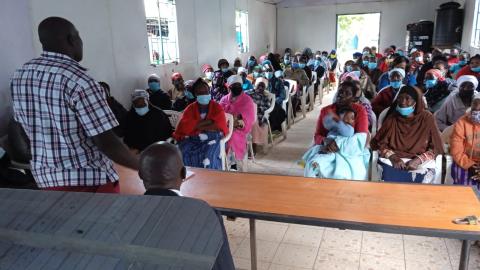
Since this is not just a process for COP30 but part of a longer journey to establish a lasting institution, what is the main impact you hope to achieve?
I think the question of impact is directly linked to what we call 'theories of change'. Many citizens' assemblies have a theory of change that is rooted in mandates from power holders, which assumes that a clear and strong mandate leads to institutional and policy change. But the reality is that policy impact is limited, and the research is lacking. This is disempowering in many cases because people get involved in assemblies, their sense of self and collective agency is activated, and then there is often disillusionment due to the lack of policy impact. With the GCA, the theory of change is not limited to institutional action and equipping assembly participants to be able to more effectively influence policymakers, but also to build citizens' power to lead actions independently of policymakers.
One aspect of our theory of change is building solidarity, as an antidote to polarisation. That's what the trans-local and transnational aspects of this project do. It's good to conduct processes in the Global North—but how do you connect these processes to assemblies happening in the Global South? And how does that impact the deliberation and the outcomes? Other key elements are learning at scale, as an antidote to misinformation and disinformation, and inclusion.
What do you think other practitioners could learn from this process?
Again, I think it's important to think about impact. We've seen a rise in state-commissioned assemblies, but we know that change is not happening at the pace we need. While the recommendations of climate assemblies are good and quite transformative, we also know that they often land in a system that is not suited for transformative change. This was the rationale for creating the Coalition for the Global Citizens' Assembly: looking at who has the power to actually make change. We need to reclaim deliberative democracy from public authorities, embed it in our lives and rediscover its disruptive potential. In a paper about climate assemblies that I wrote with Professor Graham Smith, we show that this is already happening. But it can be challenging for people working in the deliberative democracy field because it questions the theory of change of the traditional citizens' assembly model which assumes a mandate from authorities. As democratic innovation practitioners, we need to support grassroots communities, organisations and movements so they can initiate their assemblies bottom-up and do it well.
What is your vision for climate assemblies in the future, and how do you see them evolving to address future challenges?
I think it builds on the point I've just made. I think—and that's something Greta Thunberg said—”nobody's coming to save us.” The vested interests and the status quo are so strong. At the end of the day, it's about us, citizens, doing democracy ourselves. We're facing a rise in polarisation and authoritarianism, and we're going to have to do the hard work in our communities, regardless of what political groups are in power. I think in the future, we will have to do deliberation in very unstable political situations. It's going to be much more about citizens' activation, adaptation and resilience in the face of climate, social and political breakdown. In a public lecture for International IDEA, Professor Nicole Curato explained how she witnessed the transformative power of deliberative democracy in climate and conflict-affected settings such as in the aftermath of typhoon Haiyan in the Philippines in 2013.
Rich countries from the Global North that so far have been spared from the most intense impacts of the climate and ecological crisis need to learn from countries on the front lines in the Global South. Some will say it's not a hopeful narrative, but actually, when you experience deliberative democracy in communities, it can be really empowering and joyful. Right now, there are so many initiatives reclaiming democracy and it's happening all around the world. And that's what gives me hope.
This interview has been edited for length and clarity.
Disclaimer: Opinions expressed in this commentary are those of the authors and do not necessarily represent the institutional position of International IDEA, its Board of Advisers or its Council of Member States.
